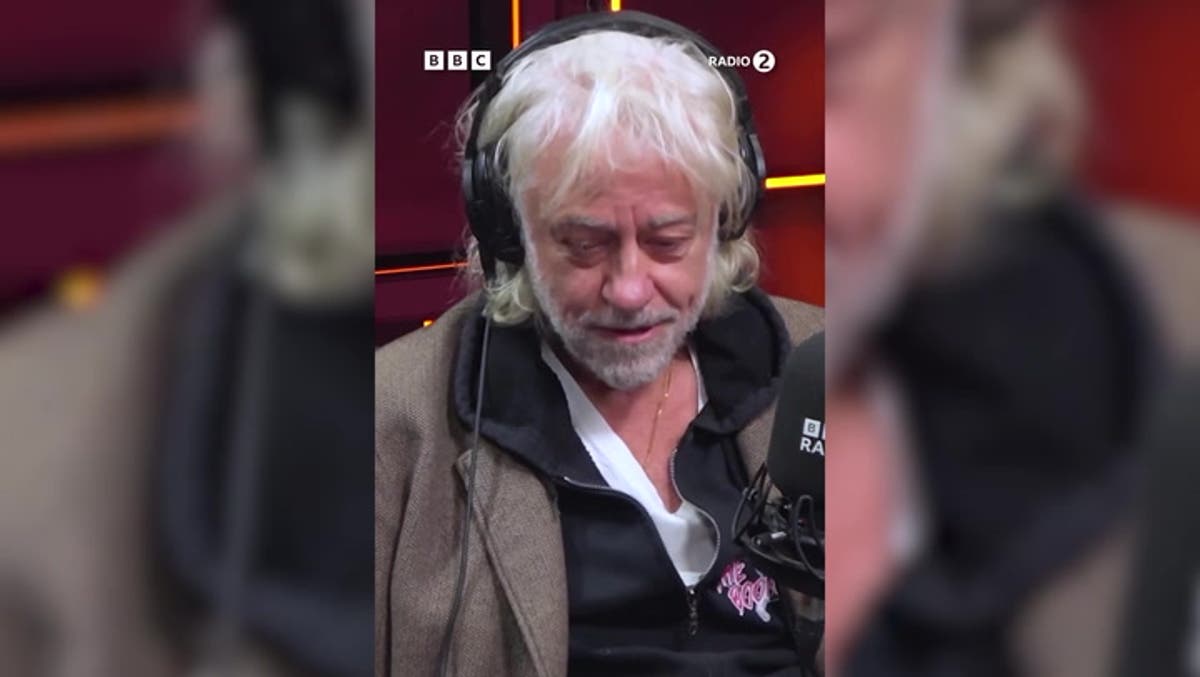I’m not one to try to second-guess Bob Geldorf, but, like Ed Sheeran (“Bob Geldof says he’ll ‘chat’ to Ed Sheeran as listeners call Band Aid 40 song ‘awful’”, 26 November 2024) I have also changed my view of his Band Aid song.
To me, “Do They Know It’s Christmas” is clearly written to – and for – Western audiences. The controversial line: “Tonight, thank God, it’s them instead of you” is a sarcastic call to arms. Yes, we know there’s no snow in Africa at Christmas. It’s called poetic licence. It’s Geldorf ramming home a metaphor to us in the comfortable West. It also feeds children. No one should argue with that.
Michael Ayers
London
We need a referendum on assisted dying
Parliament is poised to debate assisted dying legislation; the outcome of which could be historic (“Why we can’t (and shouldn’t) separate God from the argument over assisted dying”, 26 November, 2024). The worrying issue coming out of media interviews is that MPs seem to be basing their voting intentions on personal experience: I had a relative to whom such and such happened; I had a friend who experienced so and so.
It might not be considered “the British way”, but might I suggest a referendum to inform the decisions? I thought MPs were there to reflect the views of their constituents, not their personal prejudices.
Dr Anthony Ingleton
Sheffield
I’m 89 – why am I not being asked what I think about assisted dying?
Have any MPs sought the views of their constituents regarding the assisted dying bill? (“The quest for people to die with dignity is paramount”, 23 November 2024). Surely they should do so, as to vote either way because of their own opinions or religion does not necessarily reflect the view of the general public.
I am 89 – and would welcome the chance to choose when I had had enough, though I do not expect to qualify under the rules of the bill even if it were passed. I face my future with great apprehension, expecting to have years of just existing with increasing pain and difficulties – and being forced to pay a great deal of my modest savings to do so.
I feel that not being a burden to my family (and having some money left to be able to pass on to them) is a very good reason to wish for a means of having an easy and peaceful death, before my life becomes intolerable to me.
Name witheld
Address supplied
People have the right to choose dignity in death
Jane Campbell is wrong in condemning the assisted dying bill (“To me, assisted dying is not an ethical or religious issue – it is about my right to live”, 25 November 2024). I would not presume to speak for her or any person living with disability or a chronic illness, but we cannot afford to miss this once-in-a-generation opportunity to change our out-dated legal system.
There are as many voices supporting the right to choose the time and manner of one’s death as oppose it – and if we want to consider ourselves a free society, then we have to trust people, supported by the medical profession, to make an informed choice. Whenever important changes in legislation are proposed – votes for women, gay rights, abortion rights etc – there are always, sadly, a vocal group of partisans who want to prevent it, citing largely illusory risks.
Jane refers to the examples of other countries and the likelihood that legislation will change over time depending on experience – this points to the success of legal assisted dying pathways, rather than their failure. Please stop telling other people what decisions they can and can’t be trusted to make. It is pointless to say that if everyone had access to perfect palliative care, then this change in law would not be needed… it would be cruel beyond words to condemn individuals to years of pain, while we wait for the perfect world to arrive. For some people, palliative care is not the answer anyway. They just want to have a choice – and to have dignity in death.
Bob Humphreys
Address supplied
The Mental Health Bill is important. This is why
I am an autistic adult with moderate learning disabilities. I also struggle with general anxiety and communication. The past decade has been very tough, as I lived in a hospital from 2010 to 2023.
Last year, my life changed for the better. Thanks to my local council and support provider Dimensions, I transitioned to living independently with 3:1 support. Since leaving hospital, I’ve become much happier. I used to have patches of hair missing, skin problems and a poor diet. These issues no longer affect me as I can cook for myself and eat more healthily.
Supported living has helped me to manage my anxiety and trauma – I have a flat which I am proud of and now feel safe at home. I’m building up the confidence to go out more in my local area and do the things I love, like cycling. Best of all, my mother and I were reunited for the first time in six years.
This transformation happened because I got the opportunity to live a meaningful life outside of hospital. But not everyone has this chance. Over 2,000 autistic people and people with a learning disability are currently locked up in long-stay hospitals and assessment treatment units – often far from home, under strong medication and with little understanding of why. This needs to change, and the new Mental Health Bill (“Our outdated mental health laws are as old as I am – and treat people more like criminals than patients”, Wes Streeting, 6 November 2024) offers a promising opportunity. Please make this happen.
Arnold
Reading

